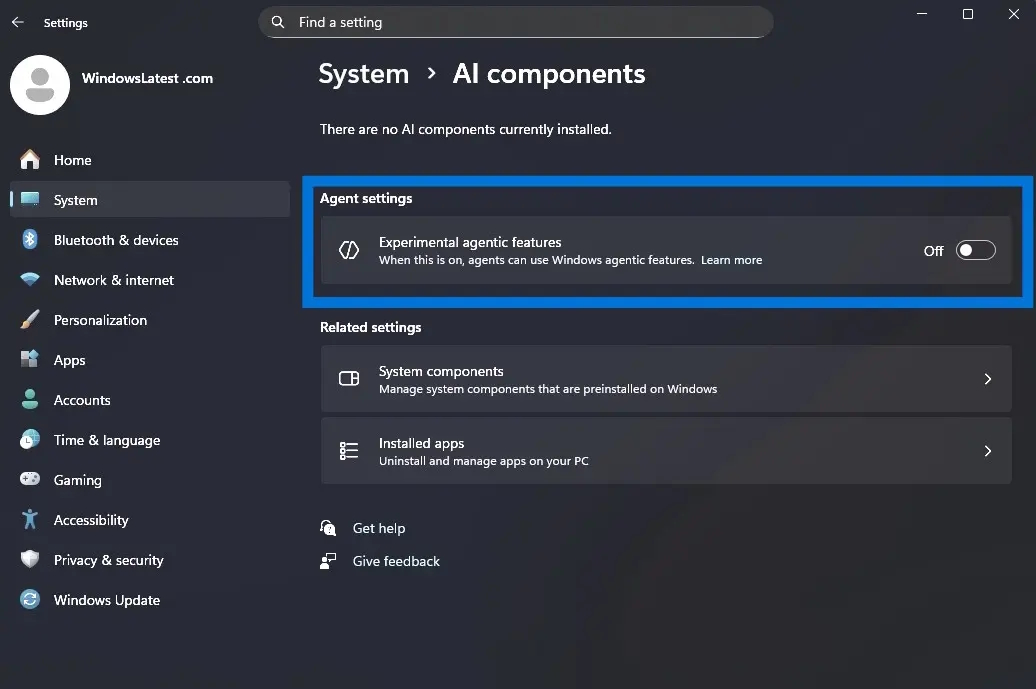Microsoft's latest Insider build quietly enables an autonomous AI Agent running in a separate environment with persistent background activity, raising questions around performance, privacy, and Windows' future direction.
Microsoft has started experimenting with a new AI Agent feature in Windows 11, and it has already appeared in Insider Build 26220.7262. Testers in the Dev and Beta channels will find a new "Experimental Agent" toggle under Settings > System > AI Elements. The feature arrives only weeks after Microsoft leadership discussed plans to transform Windows into an "AI Agentic OS," a statement that drew heavy criticism from users. Despite the pushback, the underlying components are now active in preview builds.
This AI Agent is not just another Copilot-related function. It runs as an autonomous background entity with its own execution environment, including a separate desktop session and system account. Instead of operating under the user's profile, it works in isolation while still being allowed access to approved directories like desktop, pictures, music, and videos. The goal is to let the Agent carry out multi-step tasks in the background—browsing, searching, compiling information, or performing actions—without interfering with the user's main desktop.
Windows displays multiple warnings before enabling the feature. Microsoft notes that continuous background activity may affect performance, and resource usage can vary depending on workload. Early observations confirm that the Agent remains active even when idle, consuming CPU, memory, or NPU cycles. Systems with limited hardware may see a more noticeable impact. Security and privacy concerns are also part of the warnings, as the Agent has access to personal file paths and operates persistently.
The design mirrors modern autonomous AI workflows used in tools like ChatGPT agents, where the system can open a workspace, interact with applications, follow multi-step procedures, and wait for user confirmation before executing final actions. Microsoft has implemented this using a separate system account to maintain a boundary between the user's desktop and the Agent's environment. Both operate on the same machine but remain logically isolated.
For now, the feature remains strictly optional, and only Insider testers can enable it. However, its presence reinforces Microsoft's direction: Windows is gradually shifting toward deeper AI integration, with autonomous processes playing a larger role in future builds. Whether users ultimately welcome or resist these changes, the AI Agent appears to be a foundational component of Windows' long-term roadmap.







